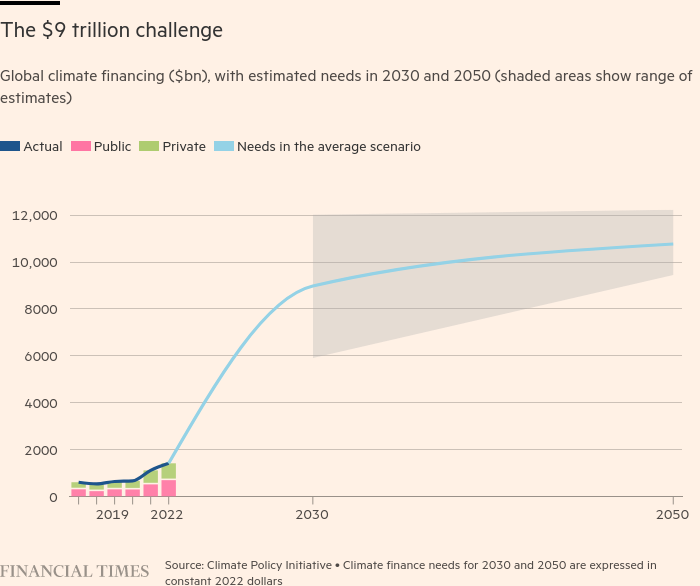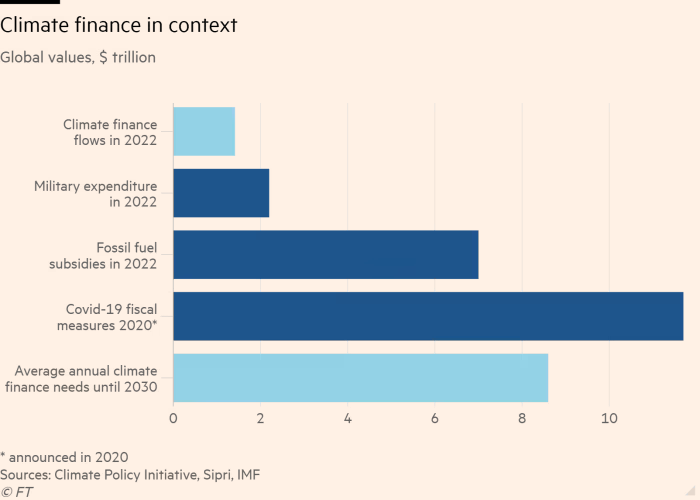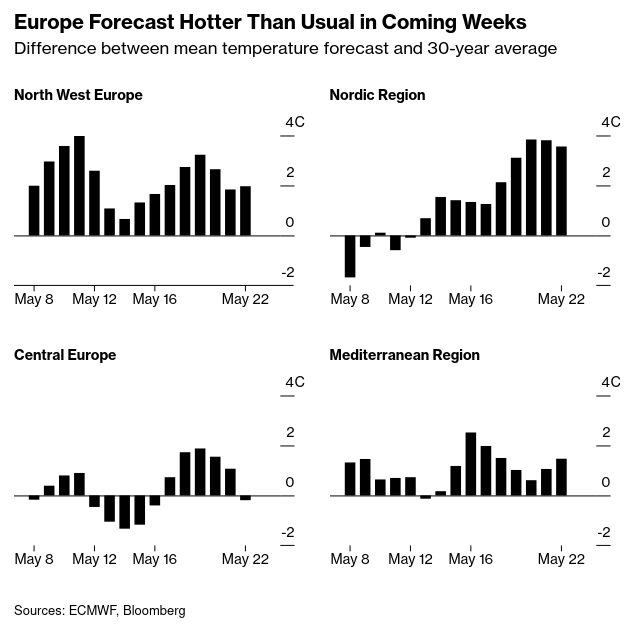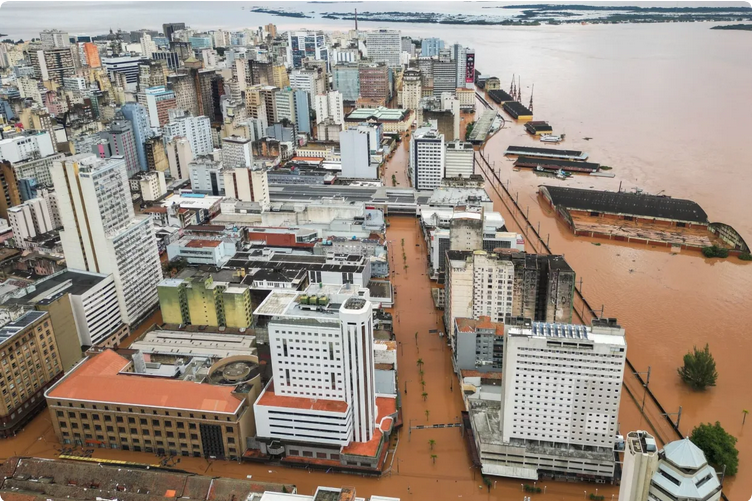May 9, 2024
Climate costs
Every so often there are some graphs produced that remind you how well we are doing in responding to something. Here are two such graphs.


Now, this isn't just spending, it is value creation in the correct area. You might think that is easier to get to, but that is not correct. Value creation is the most difficult thing for capitalism to do, it has to spend more than that to actually find the investment that actually works to produce value. So, some of these numbers are low under the current system.
How do we square the amount of investment needed with the ongoing liberal fretting about the size of public and private debt? The work that has to go into creating the value necessary to have those investment generate new value doesn't exist yet (by definition). So, there is a significant segment of that value creation that will have to be borrowed against before it can be created. The further we move along that time line to the right, the more we have to borrow because the faster we have to make more things.
At some point, we physically run out of time to build the things that are necessary to reach the climate investment goal. The thing to note is that we run out of time well before we reach the end of that line in the graph.
So, we look at these graphs and we should see much more and faster than is presented when it comes to actually doing what those curves are representing.
The climate news has taken a back seat to immediate concerns of war, but it is an ever present concern.

The European Union’s Copernicus Climate Change Service said last month’s temperatures globally were 1.58C (2.8F) above historical averages and marked the hottest April on record. The past 12 months have been 1.61C higher than pre-industrial temperatures, exceeding the 1.5C threshold that policymakers and scientists say could threaten life on the planet.
Floods in Brazil have killed over 100 people and displaced 100,000. The Rio Grande do Sol has overflowed its banks.

67,000 are in shelters and the death toll is rising daily. Roughly 500,000 people remain without electricity, with an equal number lacking access to clean water, according to local authorities.

In Canada, a drought in Western Canada has been interrupted by rain offering hope that this year's harvest can be saved. Instead of focusing on the climate-related emergency unfolding there, the right wing and companies are hand wringing about the potential rail strike with the Teamsters. Teamsters are demanding safety on the rail system and investment, two things that are desperately needed from the companies who have avoided dealing the real threats to the transport system.
The ability for companies to leverage the other threats to our supply chains such as climate change and safety to attack workers is not surprising, but it is a point that needs to be taken. As things become more difficult to predict, suppressing workers' contracts continue to be the easiest place in search of stable profit generation.